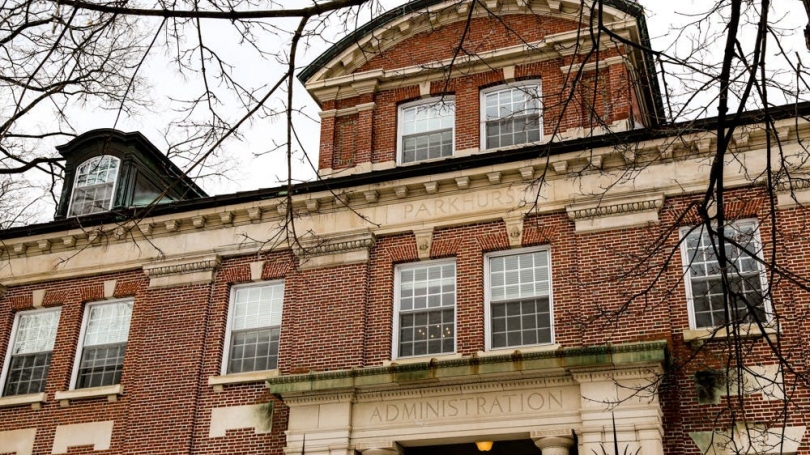
- About
- Wellbeing
- Prevention & Education
- Get Involved
- News & Events
Back to Top Nav
Back to Top Nav
Back to Top Nav
Back to Top Nav
Back to Top Nav
The informal procedures provide more choices for survivors of sexual misconduct.
The new sexual and gender-based misconduct policy adopted by the College in September 2019 includes a set of informal procedures available to students, faculty and staff which provide more choices for resolutions and resources to survivors of sexual misconduct.
According to Title IX coordinator Kristi Clemens, the informal procedures in the new policy can be used as alternatives to pursuing a formal investigation by survivors of sexual misconduct who may not want to, or feel comfortable pursuing, formal action.
"In the policy, we now have informal resolutions, which can be a wide range of options," Clemens said. "So people can come here and say, 'I just want to tell you something, I want to put it on the record,' and that's the end of it. Or they could come and say, 'I need some supportive measures, like I need some extra time on a paper; I need to move out of my residence hall; I might need a no contact order with this other person.' It can be a wide range of different things."
Proceedings that take place under these informal policies do not require finding of responsibility or an investigation, Clemens said.
With the new policy, the Title IX office can work with the complainant to find a solution that fits. For example, the complainant can say that they want a letter of apology or that they want the other person(s) to go through some sort of training. The respondent would then receive the feedback, and the Title IX office continues to work with both parties from there, Clemens said.
Informal proceedings also offer a way for the Title IX office to both offer and record more
community-based resolutions to sexual and gender-based misconduct. According to Clemens, some students in the past have tried to find resolutions to cases of sexual misconduct within communities like clubs and Greek houses, as opposed to reaching out to the Title IX office.
"[Students] might take something to a group board, or they may take it to the president of a club that they're both in and say, 'How can we sort this out?'" Clemens said. "But now, we can do that as an institution and have some record of it."
Clemens explained that there are similar informal policies for faculty and staff, but they differ slightly given obligations that the College has.
According to Clemens, the Title IX office held separate informational sessions for students, faculty and staff in the fall to spread awareness of new policy and informal procedures. Although the sessions were well attended by staff, they were poorly attended by faculty and almost unattended by students, Clemens said.
In order to spread awareness of the informal procedures, the Title IX office is considering holding office hours in residence halls and other communities where they have not previously done outreach.
According to Student Wellness Center director Caitlin Barthelmes, one of the goals of the Sexual Violence Prevention Project is to make students more aware of all sexual misconduct resources on campus, including informal ones. She added that although SVPP and Title IX are separate entities, they communicate with each other very often.
"SVPP is in the process of creating a four-year experience for all Dartmouth undergraduates that equips them with the knowledge and skills to help reduce sexual violence through four positive outcomes," Barthelmes said. "So, when it comes to helping students understand their options that would fall under that desired outcome of helping encourage students utilize resources, both formal and informal."
Clemens said she hopes more students and faculty will take the time to learn about the new policy, as she believes it sends an important message to the community, especially in light of recent events regarding sexual misconduct.
Eric Lee '23, who learned about the Title IX informal proceedings through SVPP, said he believes that the College currently does a "decent" job of ensuring that first-year students know what avenues of support are available to them.
"I have a generally positive opinion of the SVPP program," Lee said. "I also think that doing it every term is effective, because realistically, I won't remember it if it's only once a year."